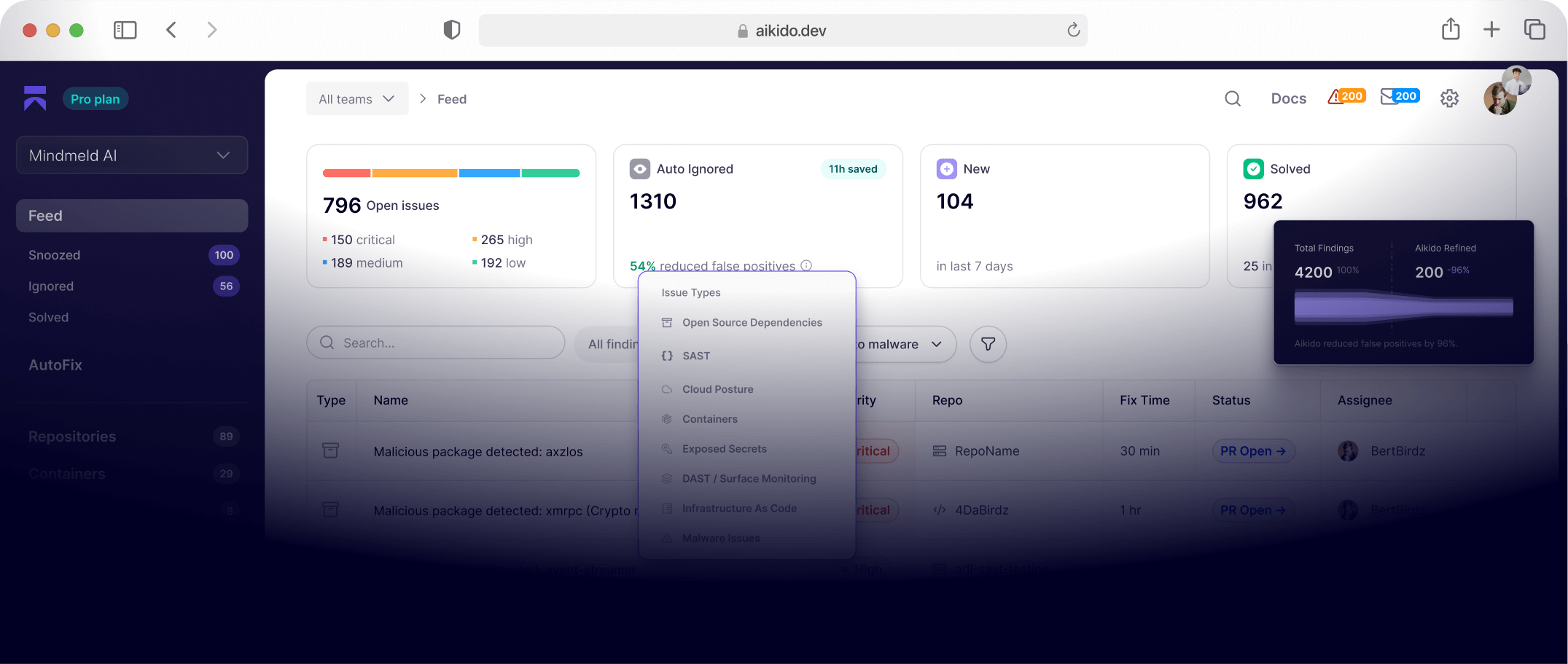Open-source license scanning
Dive into the world of open source license scanning and discover why it's crucial for developers to understand and manage the legal landscape of their code.

Open-source license scanning
Open-source frameworks and libraries have become essential building blocks for quick innovation, but come with massive responsibilities. If you adopt open-source tools with licenses incompatible with your organization’s compliance framework, you could set yourself up for costly refactoring or legal issues.
Open-source license scanning tools systematically scan your dependency tree for changes to the licenses associated with each component you added to your software. With this information integrated into your development lifecycle, you can easily navigate the complex licensing terrain of open-source, source-available, business source, and beyond.
of codebases contain open-source components, with an average of 526 components per application.
Synopsys
different types and variants of open-source licenses, plus others that are not OSI-approved.
Open Source Initiative (OSI)
of organizations currently generate Software Bill of Materials for licensing visibility.
GitLab
An example of open-source license scanning and how it works
These tools typically work by scanning your project’s files and dependencies and comparing the scanned information against a database of known licenses. Then, they generate a report that lists all identified licenses and identifies potential conflicts with your organization’s legal framework.

How does open source license scanning help developers?
Prevents accidental license violations that could lead to legal issues, like adopting a new library with a license that would, in turn, require you to release your company’s source publicly.
Helps maintain compliance with open-source licenses and corporate policies, particularly in verticals with higher compliance standards.
Visualizes the breadth of open-source components in your projects for better long-term management.
Conducting due diligence before releasing a new product or heavily modified version of an existing project.
Identifying and documenting risk ahead of a software audit from an external provider or regulator, or as part of a merger or acquisition process.
Ensuring compliance with company policies on open source usage.

Implementing open source license scanning: an overview
There are many open-source tools for scanning the licenses of your projects—FOSSology, ScanCode, and FOSSA are just a few examples—but each comes with implementation and management overhead.
Here’s how you would get started:
Or with aikido
Best practices for effective open-source license scanning
The most important thing you can do is implement license scanning early in the development process to catch issues before they become deeply embedded in your codebase. That initial inventory will quickly become invaluable as your application grows in scope and complexity.
The same idea applies to policy—the earlier you establish guardrails for which types of open-source licenses are acceptable for your applications and deployments, the better your team will be at navigating issues that require legal recourse or painful refactorings.
As you develop and deploy, make sure your development peers understand why these scans matter and why they should pay attention to potential risks from the moment they run npm install, of the potential risk. Your open-source license scanning tools should run on regular schedules or even with every commit as part of your CI/CD pipeline, but if you went the open-source route, make sure you regularly update them in your package.json or equivalent file to ensure scans are aware of new license types and variations.
Get started with open source license scanning for free
Connect your Git platform to Aikido to start open-source license scanning with instant triaging, smart prioritization, and pinpoint context for fast remediation.
First results in 60 seconds with read-only access.
SOC2 Type 2 and
ISO27001:2022 certified
Get secure now
Secure your code, cloud, and runtime in one central system.
Find and fix vulnerabilities fast automatically.


